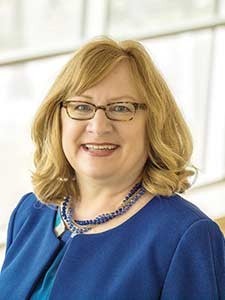Microaggressions are “brief and commonplace daily verbal, behavioral, or environmental indignities, whether intentional or unintentional, that communicate hostile, derogatory, or negative . . . slights and insults” (Sue et al., 2007).
Microaggressions can have a macro affect, particularly when considering the cumulative burden for individuals and organizations over time. Microaggressions show up everywhere in society including in our classrooms, clinics, hallways, on social media, in our neighborhood watch app, and at the grocery store!
Cheung, F., Ganote, C. M., & Souza, T.J. (2016) use the A.C.T.I.O.N. acronym as a safe way for people to address microaggressions at work or in society.
Developing a response strategy BEFORE a microaggression appears, builds efficacy in faculty, staff, students and trainees who must respond in real time to microaggressors. Collecting data on frequency or patterns of microaggression can help organizations and individuals design approaches systematically, empowering the people who shape our cultures.
Take A.C.T.I.O.N.
Ask: Ask clarifying questions to assist with understanding the microaggressor's intentions. Try, “I want to make sure I understand what you were saying. Were you saying...?”
Carefully listen: If they disagree with your paraphrase, you could end the conversation or make a statement about their initial comment. If they agree with your paraphrase, explore their intent further.
Tell others: Indicate what you observed as problematic in a factual manner. “I noticed that...”
Impact consideration: Ask for or state the potential impact of such a statement or action on others. “What do you think people think when they hear that type of comment?”
Own your response: Own your own thoughts and feelings around the impact by using first-person language. “When I hear your comment, I think/feel...”
Next steps: Request appropriate action be taken and check in with the target of the microaggression. “I would appreciate it if you would stop making these types of comments, because...”
You can advance the dialogue about how to respond to microaggressions at your organization with this open access downloadable infographic.
References
Cheung, F., Ganote, C. M., & Souza, T.J. (2016). Microaggressions and microresistance: Supporting and empowering students. In Faculty Focus Special Report: Diversity and Inclusion in the College Classroom.
Sue, D. W., Capodilupo, C. M., Torino, G. C., Bucceri, J. M., Holder, A. M. B., Nadal, K. L., & Esquilin, M. (2007). Racial microaggressions in everyday life: Implications for clinical practice. American Psychologist, 62(4), 271-286.
Author BIO

Linda M. Love, EdD is a health professions educator and organizational developer. She is the Director of Faculty Development, an Interprofessional Academy of Educators Scholar, and Assistant Professor in the Department of Psychiatry at the University of Nebraska Medical Center. Linda’s areas of professional interest include career development and professional identity development of medical educators, developing new generations of health professions educational leaders, and teaching/learning in the Information Age. Linda can be followed on Twitter or contacted via email.
#MedEdPearls are developed monthly by the Central Group on Educational Affairs. Previously, #MedEdPearls explored topics including coaching for peak performance, converting teaching into scholarship, and reflective practice. Thank you for reading and enjoy the Pearls!
#MedEdPearls

Jean Bailey, PhD – Virginia Commonwealth University School of Medicine
Rachel Moquin, EdD, MA – Washington University School of Medicine

